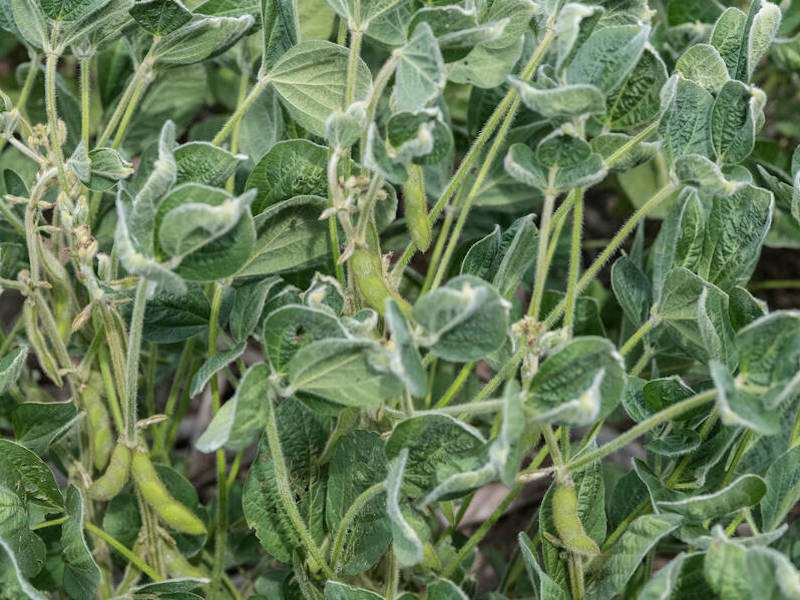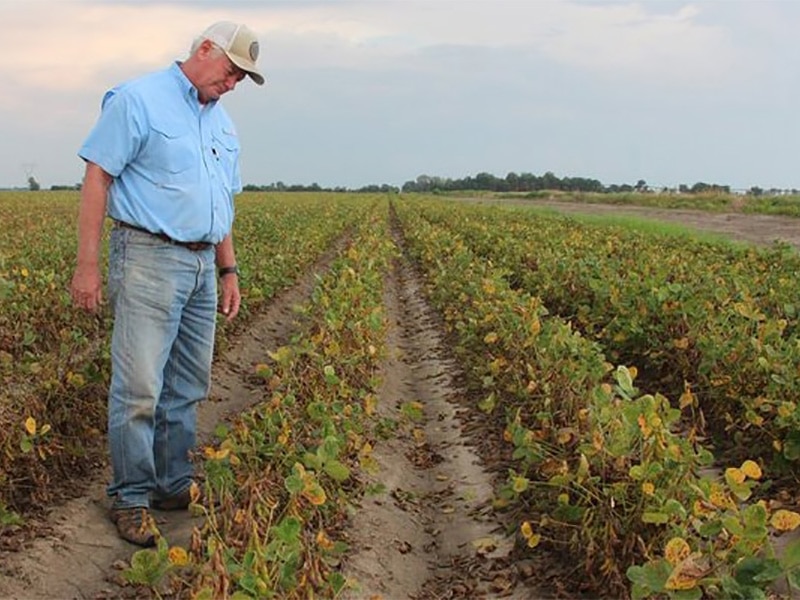Paraquat Lawsuit
Paraquat dichloride (paraquat) is a chemical agent most commonly used as an herbicide. Although it was first produced more than 130 years ago, its application as an herbicide did not become popularized until the mid-20th century. Paraquat is now used as an herbicide agent on a range of more than 100 different types of crops.
A study conducted in 2012 – the Genetic Modification of the Association of Paraquat and Parkinson’s Disease – found that individuals who used Paraquat, and who also had a specific genetic variation, were 11 times more likely to develop Parkinson’s, indicating that some people are put at greater risk by being exposed to the chemical.

If you have been exposed to Paraquat — or similar herbicide Rotenone — and subsequently developed Parkinson’s disease or signs of ongoing developing Parkinson’s, you may qualify to participate in the Paraquat lawsuit. Contact Us today for a FREE, no-obligation Paraquat lawsuit consultation. Our experienced chemical exposure law team can help you assess your case and your best plan of action.
What is the Alleged Problem with Paraquat?
Studies suggest that exposure to Paraquat may be linked to the development of serious health complications. According to the Unified Parkinson’s Advocacy Council (UPAC), studies “indicate that exposure to paraquat, either directly through air or clothing-borne herbicide drift, markedly increases risk of developing Parkinson’s.”
According to the American Council on Science and Health, Paraquat’s relative toxicity of glyphosate, another popularly used herbicide known to be toxic, ranges from 33-250. A lethal dose for an average person is around 2.5 grams, and it is even more toxic when inhaled. Paraquat’s toxicity has made it a traditionally popular agent for suicide because it can kill a person with a single sip.
Paraquat Lawsuit | Paraquat Linked to Parkinson’s Disease

In February 2011, the National Institute of Health (NIH) conducted a study – the Farming and Movement Evaluation (FAME) – exploring claims that exposure to the popular herbicide Paraquat could be linked to a greater risk of developing Parkinson’s disease.
Following the study’s release, Syngenta, a Swiss herbicide manufacturer, claimed on its website that data from the study showed that farmers who use Paraquat are less likely to develop Parkinson’s disease than the general population. This claim was highly debated by the study’s authors, who attested that the data from the study showed that individuals were roughly two and a half times more likely to develop Parkinson’s after being exposed to Paraquat (or a similar herbicide – Rotenone).
Paraquat Lawsuit Filed
There is currently a Paraquat lawsuit filed in St. Clair County, Illinois. The lawsuit, which was filed on Oct. 6, 2017, is filed on behalf of farmers and agricultural workers who were exposed to Paraquat and, as a result, developed Parkinson’s disease. The original defendants named in the Paraquat lawsuit were Syngenta and Growmark.
Plaintiffs in the Paraquat lawsuit claim that Syngenta and Growmark manufactured Paraquat, distributed and sold it as Gramoxone or by other names since 1964.
In an amended complaint, plaintiffs also named Chevron Chemical as a defendant, claiming that Chevron acted in concert with Syngenta and Growmark.
Plaintiffs argue that, before the recent studies linking paraquat to Parkinson’s, they were completely unaware that the chemical posed any long-term health risks.
Paraquat Lawsuit Eligibility
If you have previously been exposed to Paraquat — or similar herbicide Rotenone — and subsequently developed Parkinson’s disease or signs of ongoing developing Parkinson’s, you may qualify to participate in the Paraquat lawsuit.
Contact Peiffer Wolf today for a free, no-obligation Paraquat lawsuit case consultation. Our experienced team can help you assess your case and your best plan of action.
PARAQUAT IN THE NEWS
Yes. Please call us or use our contact form to request a Free Case Evaluation. We have a national team of attorneys and staff who look forward to speaking with you.
Typically, we represent clients on contingency fee agreements. If we take your case under a contingency fee arrangement, you won’t owe our firm any legal fees unless we are able to recover money for you.
Our contingency fee agreements are usually based on a percentage of the amount we recover for our clients. The contingency fee amount is determined by the type of case, our estimate of how long it will take to resolve your case, and our estimate of the litigation costs we will advance in your case. Each engagement agreement includes the details of the fee arrangement. Questions about our fee agreements are welcomed and encouraged.
In most litigation matters, it is extremely difficult – practically impossible – to predict how long it will take to resolve a particular case. Every case is different, and we will do our best to provide you with an estimate based on your case and our experience with similar cases. Moreover, we will do our best to keep you updated and manage expectations along the way.
We handle cases that change lives. Contact us today for a FREE consultation.






